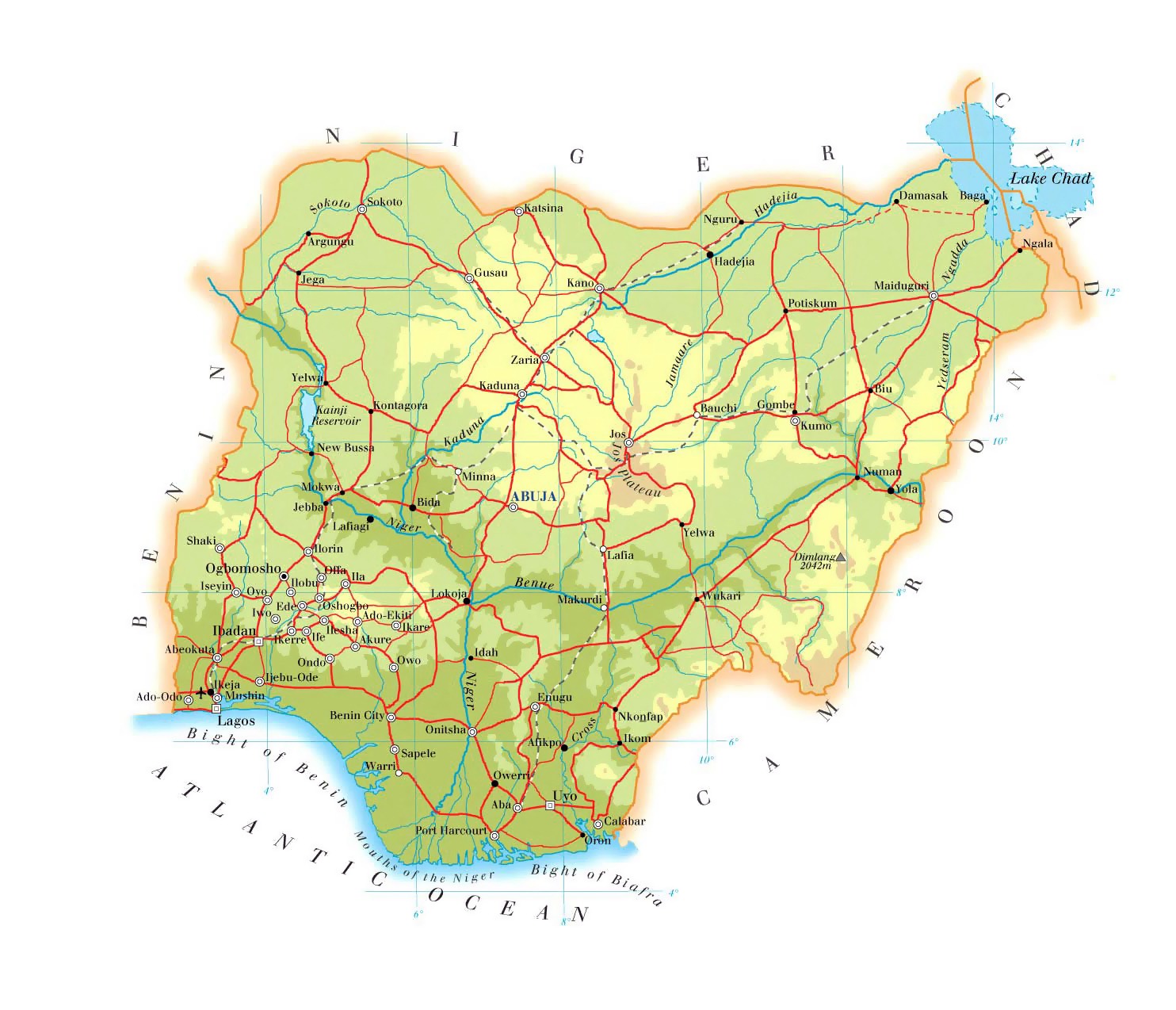Nigeria, in West Africa, is Africa’s most populous country, and the world’s 6th most populous country, with a population of 225 million people from many different ethnic groups. The official language is English, but the 250 different ethnic groups in Nigeria speak 500 distinct languages. Located on the Gulf of Guinea, Nigeria, has many diverse landscapes and climates. The far south and area near the Cameroon border includes tropical rainforests with great biodiversity. There are many mangroves providing valuable ecosystem services on the coast, and most of the middle of the country is made up of savannahs. Nigeria is Africa’s largest economy and about 25% of the economy is through agriculture. The main crops are beans, nuts, millet, rice, yams, and cocoa. Nigeria has had a diverse agricultural economy but it is now under threat because of climate change and its ripple effects.
WHAT DO YOU THINK?
How is climate change impacting Nigeria?
Drought and unpredictable rainfall

 Crop failures and loss of livestock
Crop failures and loss of livestock
Over the last two decades, droughts have worsened in Nigeria, and they are expected to continue, especially in Northern Nigeria, because of steadily declining rainfall and because of the rise in temperature, which means more water evaporates from soil. Droughts are primarily a problem in the middle and northern parts of the country. Persistent droughts have been causing crop failures and loss of livestock, which results in loss of livelihoods for farmers. and famines. Additionally, desertification has been occurring in Nigeria, with desert conditions moving southward.
Flooding and sea level rise

 In 2020 over 2 million people were affected by floods
In 2020 over 2 million people were affected by floods
Coastal communities and communities around Nigeria’s rivers, especially in the southern part of the country are increasingly at risk of floods, and floods have already been ruining homes and communities. In 2020 over 2 million people were affected by floods leading to hundreds of deaths and billions of dollars of damage. The level of rainfall in certain parts of the country have surpassed the level that has ever been seen in the last 100 years. The populous city of Lagos is regular impacted by flooding, destroying homes and businesses. There are some predictions that Lagos, home now to 24 million people, may be unlivable at the end of the century because of climate change.
Lake Chad is drying up

 People are losing their livelihoods, homes, and security
People are losing their livelihoods, homes, and security
The Lake Chad basin covers about 8% of the African continent, and crosses Nigeria, as well as Algeria, Cameroon, Central African Republic, Chad, Libya, and Niger. It has been a source of livelihoods for 30 million people. But over the last decades it has shrunk by 90%. Farmers and fishing communities are losing their livelihoods. The drying up of Lake Chad, primarily caused by climate change, is leading to a humanitarian crisis as people lose their livelihoods, their homes, and their security. Already the crisis is leading to violent terrorism and extremism, as well as conflicts among different farmers and herders who are trying to make a living.
Next
